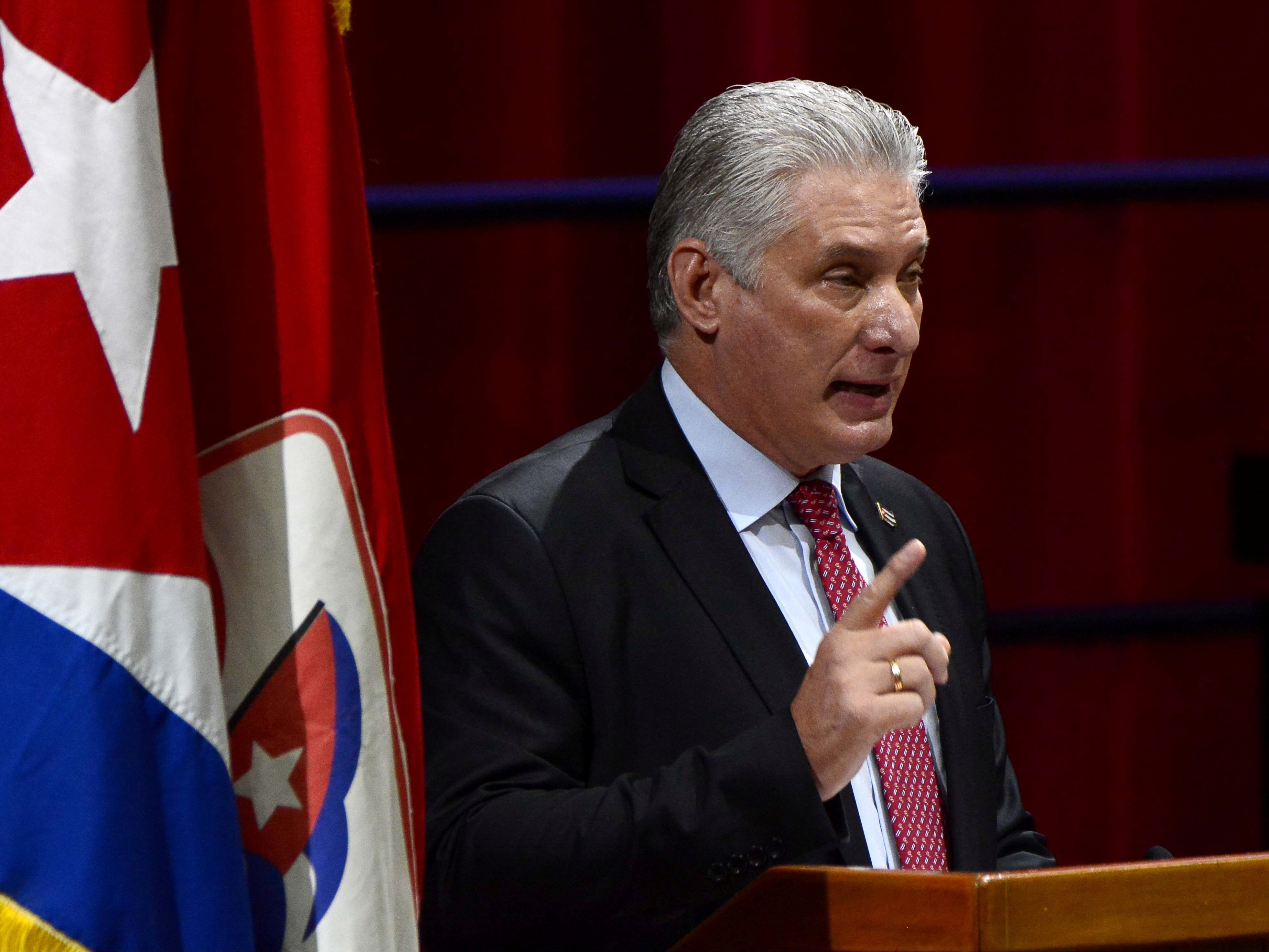Cuba’s Communist Party appoints Miguel Diaz-Canel as first non-Castro leader since 1959
New leader is expected to maintain country’s one-party socialist system

Cuba’s ruling Communist Party has elected President Miguel Diaz-Canel as party first secretary, marking the first time in more than six decades that the country will be run by a person who is not a member of the Castro family.
Mr Diaz-Canel’s election to the most powerful position in the country at the Communist Party’s conference on Monday brought an end to an era led by brothers Fidel and Raul Castro.
As a career politician who worked his way through the party ranks, the 60-year-old represents a break from the Communist Party’s past two leaders - who rose to power in the leftist 1959 Cuban revolution which led to the downfall of authoritarian leader Gen Fulgencio Batista.
However, he is also seen as a continuity figure who is thought to be loyal to the Castros and is not expected to move the country away from its one-party socialist system.
Mr Diaz-Canel succeeded Raul Castro as Cuba’s president in 2018 and had been widely-expected to be nominated as first party secretary.
“Diaz-Canel is not the fruit of improvisation but of the thoughtful selection of a young revolutionary who has all that is required to be promoted to higher positions,” Mr Castro said in a speech opening the conference on Friday.
Hundreds of party delegates gathered in Havana for the meeting, which takes place every five years to review policy and elect new leadership.
Mr Diaz-Canel began his career in politics as a young man, rising to a senior post in the Union of Young Communists and then working his way through a series of positions in Cuba’s provinces.
He held positions in the Cuban government such as Minister of Higher Education from 2009 to 2013 and First Vice President of the Council of State of Cuba from 2013 to 2018.
As other promising young officials fell out of favour with the leadership, Mr Diaz-Canel acted as a staunch defender of Cuba’s political system while also pushing for limited gradual reforms.
After taking over as president in 2018, he pushed forward with opening the country’s once-wholly state-dominated economy, allowing more private businesses and room for some small-scale entrepreneurs.
Additional reporting by agencies
Join our commenting forum
Join thought-provoking conversations, follow other Independent readers and see their replies
Comments
Bookmark popover
Removed from bookmarks